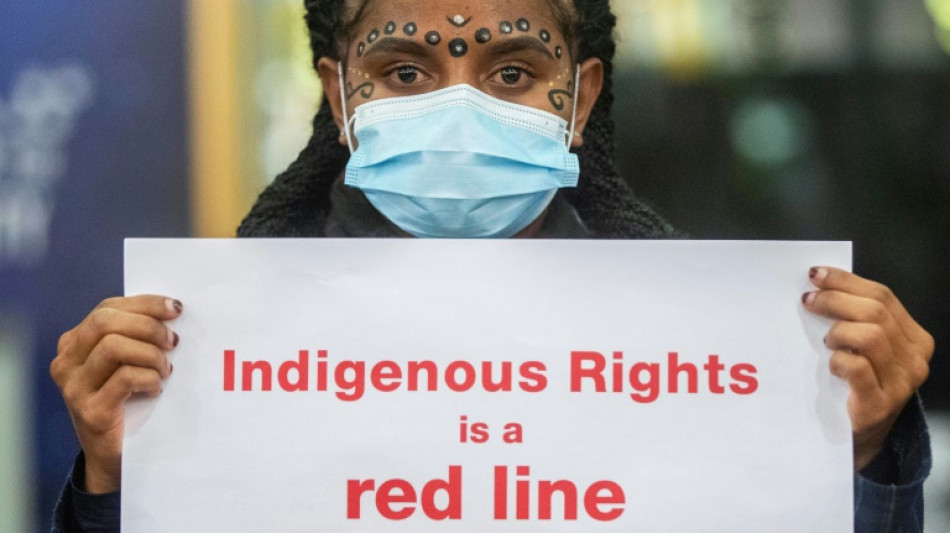
-
 European basketball pioneer Schrempf lauds 'global' NBA
European basketball pioneer Schrempf lauds 'global' NBA
-
Denmark, Greenland in crunch White House talks as Trump ups pressure

-
 Mitchell hits ton as New Zealand down India to level ODI series
Mitchell hits ton as New Zealand down India to level ODI series
-
Syrian army tells civilians to stay away from Kurdish positions east of Aleppo
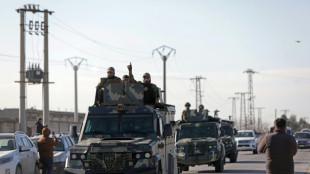
-
 Spurs sign England midfielder Gallagher from Atletico Madrid
Spurs sign England midfielder Gallagher from Atletico Madrid
-
Russian captain tried to avoid North Sea crash: court

-
 Battle over Chinese-owned chipmaker Nexperia rages in Dutch court
Battle over Chinese-owned chipmaker Nexperia rages in Dutch court
-
Transatlantic ties 'disintegrating': German vice chancellor

-
 Five problems facing Ukraine's new defence chief
Five problems facing Ukraine's new defence chief
-
Italian influencer Ferragni acquitted in Christmas cake fraud trial

-
 UK interior minister says 'lost confidence' in police chief over Maccabi fan ban
UK interior minister says 'lost confidence' in police chief over Maccabi fan ban
-
Ryanair hits out at 'stupid' Belgium over aviation taxes

-
 Burkina Faso sack coach Traore after AFCON exit
Burkina Faso sack coach Traore after AFCON exit
-
African manufacturers welcome US trade deal, call to finalise it
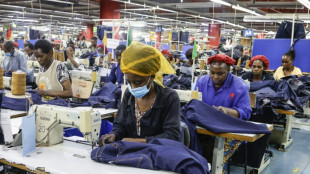
-
 What happens when fire ignites in space? 'A ball of flame'
What happens when fire ignites in space? 'A ball of flame'
-
Death of author's baby son puts Nigerian healthcare in spotlight

-
 France bans 10 British anti-migrant activists
France bans 10 British anti-migrant activists
-
2025 was third hottest year on record: climate monitors

-
 Hydrogen planes 'more for the 22nd century': France's Safran
Hydrogen planes 'more for the 22nd century': France's Safran
-
Julio Iglesias, the Spanish crooner who won global audience
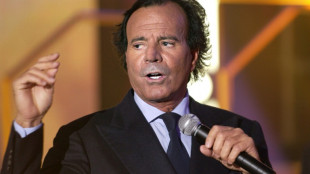
-
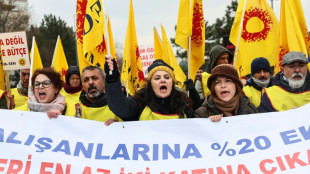 'We can't make ends meet': civil servants protest in Ankara
'We can't make ends meet': civil servants protest in Ankara
-
UK prosecutors appeal Kneecap rapper terror charge dismissal

-
 UK police chief blames AI for error in evidence over Maccabi fan ban
UK police chief blames AI for error in evidence over Maccabi fan ban
-
Oil prices extend gains on Iran unrest

-
 France bans 10 UK far-right activists over anti-migrant actions
France bans 10 UK far-right activists over anti-migrant actions
-
Every cent you take: Sting, ex-Police band mates in royalty battle

-
 Thailand crane collapses onto train, killing 32
Thailand crane collapses onto train, killing 32
-
Amateur stuns star-studded field to win 'One Point Slam' in Melbourne

-
 Italian influencer Ferragni awaits verdict in Christmas cake fraud trial
Italian influencer Ferragni awaits verdict in Christmas cake fraud trial
-
Louvre and other French museums fare hikes for non-European visitors

-
 Japan's Takaichi to dissolve parliament for snap election
Japan's Takaichi to dissolve parliament for snap election
-
Dutch court hears battle over Nexperia

-
 World-first ice archive to guard secrets of melting glaciers
World-first ice archive to guard secrets of melting glaciers
-
Ted Huffman, the New Yorker aiming to update top French opera festival

-
 Ofner celebrates early then loses in Australian Open qualifying
Ofner celebrates early then loses in Australian Open qualifying
-
Singer Julio Iglesias accused of 'human trafficking' by former staff

-
 Luxury retailer Saks Global files for bankruptcy
Luxury retailer Saks Global files for bankruptcy
-
Asian markets mostly up with politics bump for Tokyo

-
 Iran vows fast trials over protests after Trump threat
Iran vows fast trials over protests after Trump threat
-
China's trade surplus hit record $1.2 trillion in 2025

-
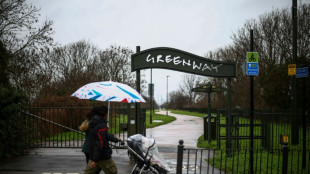 Trail goes cold in UK abandoned babies mystery
Trail goes cold in UK abandoned babies mystery
-
Japan's Takaichi set to call February snap election: media

-
 Scientist wins 'Environment Nobel' for shedding light on hidden fungal networks
Scientist wins 'Environment Nobel' for shedding light on hidden fungal networks
-
From bricklayer to record-breaker: Brentford's Thiago eyes World Cup berth

-
 Keys overcomes serve demons to win latest Australian Open warm-up
Keys overcomes serve demons to win latest Australian Open warm-up
-
As world burns, India's Amitav Ghosh writes for the future

-
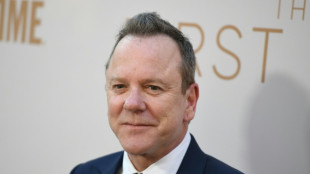 Actor Kiefer Sutherland arrested for assaulting ride-share driver
Actor Kiefer Sutherland arrested for assaulting ride-share driver
-
Gilgeous-Alexander shines as Thunder halt Spurs losing streak

-
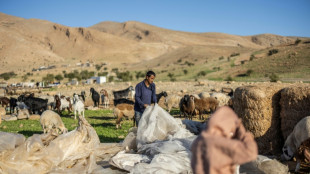 West Bank Bedouin community driven out by Israeli settler violence
West Bank Bedouin community driven out by Israeli settler violence
-
Asian markets mixed, Tokyo up on election speculation


Things to know about a landmark biodiversity agreement
After years of negotiations, the world has agreed a landmark deal to protect vanishing species and ecosystems, dubbed a "peace pact with nature" at the UN meeting in Montreal called COP15.
Here are some of its strengths, as well as where it fell short.
- '30 by 30' -
The cornerstone of the agreement is the so-called 30 by 30 goal -- a pledge to protect 30 percent of the world's land and seas by 2030.
Currently, only about 17 percent of land and seven percent of oceans are protected. The oceans target had reportedly been opposed by some countries but made it into the final text.
And some experts had said 30 percent is a low aim, insisting that protecting 50 percent would be better.
- Indigenous rights -
About 80 percent of the Earth's remaining biodiverse land is currently managed by Indigenous people, and it's broadly recognized that biodiversity is better respected on Indigenous territory.
Activists wanted to make sure their rights are not trampled in the name of conservation -- previous efforts to safeguard land have seen Indigenous communities marginalized or displaced in what has been dubbed "green colonialism."
In the end, Indigenous rights were addressed throughout the text, including in areas covered by the 30 by 30 pledge -- safeguarding Indigenous peoples' right to remain stewards of land they use and ensuring they are not subject to mass evictions.
The International Indigenous Forum on Biodiversity praised the text for its "strong language on respect for the rights of Indigenous Peoples and local communities."
- Finance -
Finance remained the overriding question.
Developing countries say developed nations grew rich by exploiting their resources and the South should be paid to preserve its ecosystems.
In the end, the text approves the objective for rich countries to provide "at least US$20 billion per year by 2025, and ... at least US$30 billion per year by 2030," approximately double and then triple the current international aid for biodiversity.
It also includes new language that mentions funding from "developed countries, and from countries that voluntarily assume obligations of developed country parties," which a Western source told AFP was meant to involve the United States.
Washington is not formally a part of the Convention on Biological Diversity but supportive of its goals.
Developing countries were also seeking a new funding mechanism, as a signal of the rich world's commitment to this goal, but developed nations said it would take several years to create.
In the end, a halfway solution was adopted: creating a "trust fund" within an existing financial mechanism called the Global Environment Facility, as a stepping stone to a new fund in the future.
- What was missing -
An overriding concern by campaigners was that the final text did not contain enough "milestones" -- key statistical measures countries should achieve before the year 2050.
For example, the text says human-induced extinction of known threatened species is halted, and, by 2050, extinction rate and risk of all species are reduced tenfold -- but there aren't targets that countries must hit before that year.
Also watered down was a mandate for businesses to assess and report on the biodiversity impacts -- instead they are merely "encouraged" to do so.
F.AbuZaid--SF-PST


